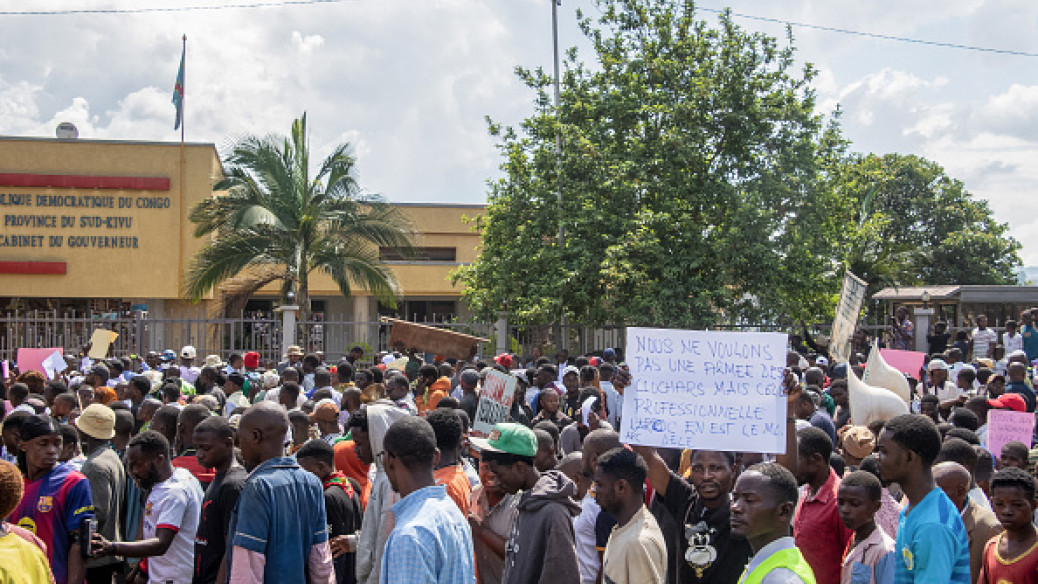Violent clashes between the M23 rebel group and pro-DRC forces took place in Uvira, as violence continues to plague the Democratic Republic of Congo.
Violent fighting broke out on Saturday between the Rwandan-backed M23 armed group and pro-Kinshasa forces in several towns around the strategic eastern DR Congo city of Uvira, local sources said.
The resource-rich east of the Democratic Republic of Congo, which borders Rwanda as well as Burundi, has been beset by 30 years of continual violence.
The situation has worsened since 2021 amid the resurgence of the M23.
Having seized the two main eastern cities of Goma and Bukavu late last year, the group launched a new offensive in December in South Kivu province and gained control on 10 December of Uvira, a strategic city of several hundred thousand people near Burundi, DRC's ally.
The group also took control of border areas at a time when the DRC and Rwanda were signing a peace accord in Washington brokered by US President Donald Trump.
"Since 3 am (0100 GMT), violent clashes between M23 rebels and Wazalendo (pro-Kinshasa militias) and the armed forces of the Republic have been reported in several localities in the territory of Uvira," in South Kivu province, Kelvin Bwija, Uvira civil society coordinator, told AFP.
Bwija cited the localities of Kashombe, Lubanda, Musingwe, Katongo, and Kigongo, located about 10 kilometers from the city as seeing fighting.
"So far, the sound of gunfire can be heard in Uvira," he said.
A resident of Kigongo, also reached by telephone, confirmed to AFP that "clashes resumed this morning, with loud explosions and gunfire" heard.
Lieutenant Reagan Mbuyi Kalonji, regional spokesman for the Congolese army (FARDC), confirmed to AFP "clashes in Kigongo and Katongo, specifically in the hills of Kashombe and Lubanda in the territory of Uvira."
Under US pressure, the M23 announced on December 17 its withdrawal from Uvira, while asking mediators to ensure the city's protection from violence and "remilitarisation."
There have also been reports of intense fighting in the neighbouring province of North Kivu since Friday, where at least six people were killed and 41 wounded in a bombing attributed to the Congolese army in Masisi territory in North Kivu province, according to local sources.
Doctors Without Borders (MSF) meanwhile stated on social media that "42 people, including many children and women, wounded by shrapnel and suffering from other injuries, were admitted to Masisi General Hospital following an air strike in a residential area of Masisi".
MSF added that two had since died. By The New Arab Staff & Agencies






